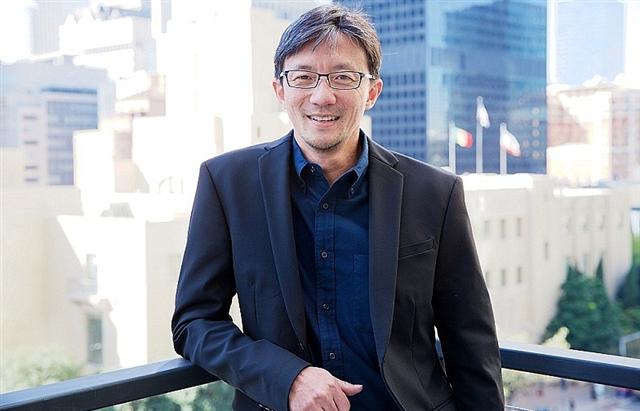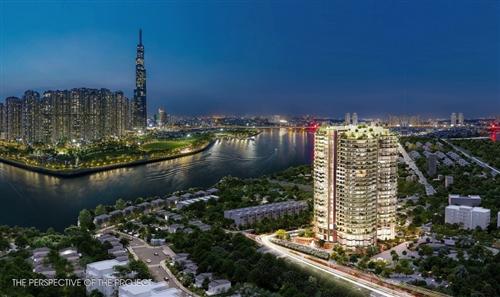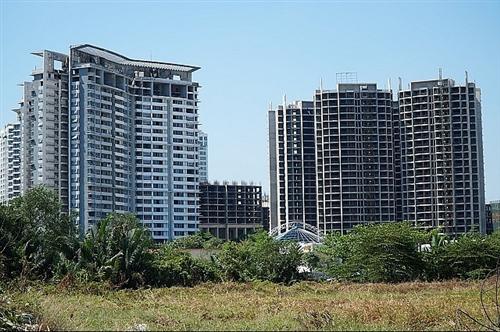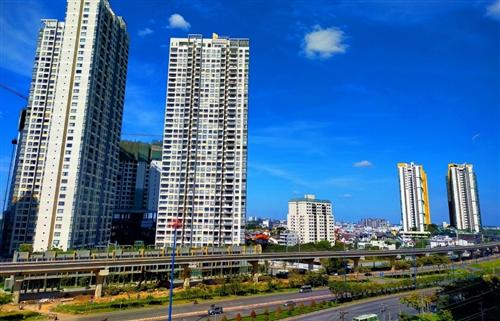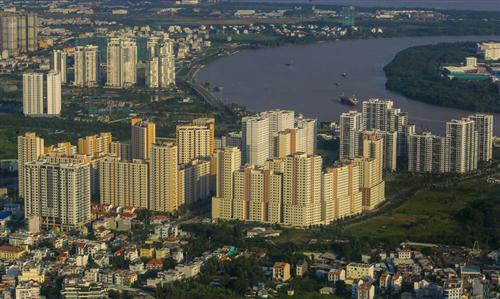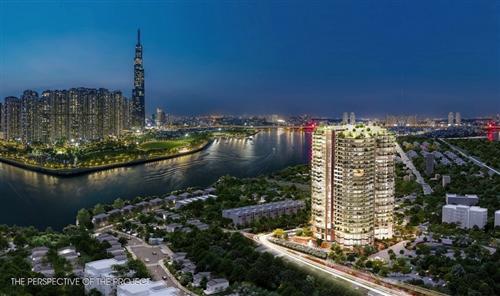Hotels setting up for post-pandemic boom
Hotels setting up for post-pandemic boom
A new wave of mergers and acquisitions in the hotel segment may reach the shores of Vietnam’s coastal and central cities even as the hospitality sector struggles with the impacts of the coronavirus pandemic.
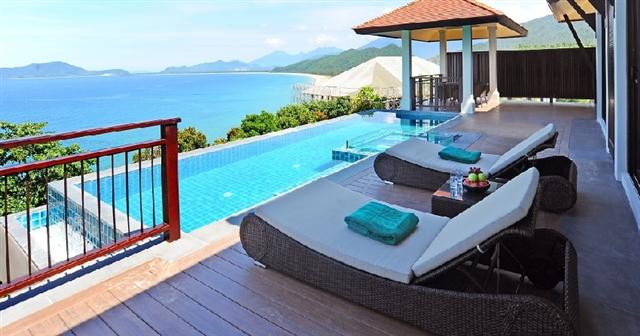
Hotels setting up for post-pandemic boom, illustration photo
|
Owners of hospitality establishments throughout the country are suffering increasing losses, especially in the coastal cities and provinces.
Many hotels in the central cities of Nha Trang and Danang have been closed, with a part of them going up for sale because their owners cannot bear the losses any more. On the website alonhadat.com.vn, hundreds of hotels are on offer, ranging from VND10-350 billion ($435,000-15.2 million).
A 4-star, 200-room hotel located in An Thuong street in Danang – a popular area among foreign visitors – is on sale for VND570 billion ($24.78 million).
“I cannot stand it anymore. I also want to restructure our finances and decided to sell the hotel to pay our loans which are coming due,” the owner of the hotel told VIR.
He added that he has a chain of five small-scale hotels in Danang, Nha Trang, Quang Binh, Quy Nhon, and Dalat. This transaction would help him keep the other four hotels which he also had to close temporarily due to COVID-19.
Meanwhile, in a previous interview with VIR, Raymond Clement, managing director of Savills Hotels Asia-Pacific, said that while long-term investors will not be deterred by short-term hurdles, sellers could face more significant challenges as cash flows are negatively impacted by COVID-19.
“These cash flow shortages could put some owners, especially those investing in highly-leveraged projects, under the financial pressure, which will result in higher incentives to sell assets or to look for co-partnerships,” Clement commented.
As a result, Vietnam and its neighbouring countries might witness a larger number of offerings this year, especially in the coastal destinations where the drop in arrivals is more severe.
According to STR, a global provider of data on hotel performance, all destinations across the Asia-Pacific reported significant drops in hotel occupancies in February, compared to the same period in 2019 and Vietnam experienced one of the largest drops worldwide with approximately 26 per cent in February.
A recent report released by Savills Vietnam in March 2020 stated that big cities such as Ho Chi Minh City and Hanoi, despite the slowdown, still managed to clinch acceptable occupancy of 48 and 60 per cent, respectively.
However, due to the new ban on international travel and rising concerns domestically, occupancy in the first three weeks of March dropped dramatically to a single digit in many destinations across Vietnam.
Among coastal destinations, Danang and Hoi An are the most affected areas due to a strong reliance on foreign guests as well as a significant number of new hotel openings in 2019.
Numerous properties have occupancy below 10 per cent and are considering temporary closures. The situation is similar in Cam Ranh, albeit owing to Russian groups and local travellers, some properties in the area are still able to operate.
Phu Quoc Island’s occupancy was just below 40 per cent in February, however the upcoming suspension of new flights will likely lead to a further large drop.
In March, big cities received several cancellations, resulting in single-digit occupancy for Ho Chi Minh City and slightly higher levels for Hanoi, as a result of existing corporate contracts with companies providing some hotels with a stable base of business.
On a positive note, resorts that rely on local clientele and can be reached by car from large cities have been less affected and are still able to perform better than the market average.
Mauro Gasparotti, director of Savills Hotels Asia-Pacific commented that hospitality in Vietnam has taken a hit and the impacts will likely continue into the foreseeable future.
However, whilst the expectation is that an entire year will be affected, as was the case with previous epidemics, at the first light of recovery, the hospitality industry is likely to see the fastest and strongest turnaround compared to other sectors.
Vietnam’s high reliance on local travellers (82.5 per cent of arrivals in 2019), particularly the Chinese and South Korean markets, could turn out to be an advantage, as these groups are expected to be some of the first who are able to travel again.
“We should all stay positive and look to the long term. From a different perspective, investment in commercial and hospitality projects, especially within the hotel and resort segment, is usually made with long-term goals in mind,” said Gasparotti.
“Therefore, short-term difficulties and market fluctuations will help screen out investors who have real management experience and the strong financial capabilities to succeed in the hospitality industry of Vietnam – a potential market which has caught the attention of both domestic and foreign investors around the world.”
|
Andy Suk Jung - CEO, SonKim Land
|
Hotels in the coastal areas have taken the largest damage as both foreign and domestic travellers have significantly reduced. The prime minister has announced big cities to have flight restrictions and requested the entertainment and tourism facilities to close down temporarily, so this will further impact business for a while.
COVID-19 will bring suffering to all owners and opportunities to potential investors. I can foresee that a lot of ownerships will change hands in the next 18 months in tourism sector, and this may give an opportunity to those who are looking for mergers and acquisitions deals. However, as tourism may take more time to recover – people will be scared to travel for a while even after the situation settles down – these activities will not start any time soon.
Nevertheless, Vietnam has a lot of beautiful coastal cities and I am quite certain that tourism business will recover quicker than other segments once the pandemic situation improves.
Adam Bury - Executive vice president JLL Hotels & Hospitality Group
 |
Vietnam’s hotel market, like other countries across Southeast Asia, has seen the immediate impacts of the COVID-19 outbreak.
Primarily, the sharp drop in international arrivals has led to declining occupancy rates. With Chinese arrivals declining around the Lunar New Year period, some properties in Vietnam have been feeling the impact for almost two months. Falling occupancy rates have become more pronounced as other source markets have tapered off and border restrictions have been implemented throughout March.
With revenues down, hoteliers have aimed to reduce variable costs to at least break even. However, it is becoming apparent that some hotels have already fallen below this threshold and a number have chosen to close temporarily.
At this stage, we have not seen a notable increase in owners looking to sell hotels. Our focus stays on those owners we were speaking with before the outbreak and to whom we are providing advisory and solutions during this challenging time. At the same time, our asset management team is working closely with clients and collaborating on strategies to help owners mitigate costs and reduce losses where possible.
We have seen Vietnamese authorities aim to help businesses impacted by the outbreak. Some of the packages will help some hotel owner’s cash flows in the short and medium term, enabling some of the owners to weather the worst of the storm.
Looking at longer-term buy-hold decisions, we foresee that some investors could re-evaluate their portfolios. Hotels and hotel land in Vietnam had been trading at premium prior to the outbreak, and not at the discount that some may expect from other real estate asset classes – office, for example, where the cash flow is backed by fixed leases as opposed to variable business operations. As a result of COVID-19, a realignment of pricing expectations might also be seen in Vietnam’s hotel real estate market, reflecting the risk premium which would typically be seen in the sector.
There are projects in the hospitality space, particularly on Vietnam’s coasts, which may not have been built with the appropriate feasibility and market studies completed. Some of these businesses, which may have not been growing as their owners anticipated, are now likely feeling the pinch the most.
It is therefore possible that some have had weakened balance sheet positions prior to this current scenario and thus these owners will be having a more stringent review of their operating models and business plans before deciding how to continue.




